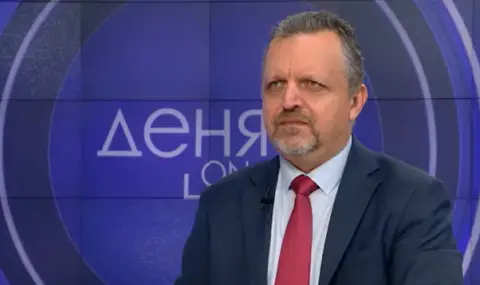Officially, Bulgaria and Romania will become full members of the Schengen area from January 1, 2025. Bulgaria has been technically ready for this since 2012, and yesterday's decision, after Austria decided to lift its veto, is a political decision. From now on, there are no unknowns for our bodies, we have been preparing for this as a country since 2012. This is what he said in the program "Bulgaria, Europe and the world in focus“ on Radio "Focus“ the former vice-rector of the Academy of the Ministry of Internal Affairs Assoc. Milen Ivanov.
Schengen is a normal process of entry into a given regulatory regime. These are rules that are laid down in the principles of the construction of the European Union, he explained and added that the introduction of the regime was necessary due to the adoption of many new members in the European Union. The admission of Bulgaria and Romania to Schengen changes the border crossing regime – the control will be based on a different technology, and in the next 6 months there will be increased control of the Bulgarian-Romanian border.
The paradox, according to Ivanov, is that Bulgaria is joining the Schengen area at the moment when half of it is not actually working according to the principles of the treaty. "Eight countries have introduced additional controls, and until the conflict in Syria is resolved, in the Middle East and North Africa these countries will not return the classic Schengen, i.e. unimpeded passage of goods, capital and people across the borders of European countries.“
"To say that such a contract hides danger is political talk. This is a regulation that has clear rules and we have clear obligations. Things from a purely technical point of view, from a security point of view are normal and there is nothing extraordinary – the state will not stop guarding its border,” also pointed out Assoc. Ivanov.
The other interesting moment, according to him, is the coincidence of the introduction of the Migration Pact and the fall of the veto by Austria. According to him, our country has a very big responsibility as an external border of Schengen. "And here already what has been agreed and what rules will be there if we fulfill or not fulfill these commitments well enough, that answer must be given by those who led the negotiations, namely the executive power,“ he pointed out.
In his words, the very rules of Schengen provide for control no longer at the border itself, but inside the territory of the country, which will not be for everyone who passes through a certain place, but will be done through the so-called principle Risk analysis. I.e. "Border Police" and Agency "Customs” they will decide who will be stopped and subjected to a thorough investigation. "Schengen requires very serious control of the country's territory – we do not check people at the borders, but we check them inside the territory of the country. This means that those who will carry out this control must have information, and on the basis of this information they must take preventive measures. To act in advance is the meaning of the so-called principle Risk analysis. This requires very serious information management in the services and in the state as a whole. This has been happening until now, but now anticipatory information, its pre-processing and the output of valid results for risk analysis become a primary task,” explained Assoc. Ivanov and added that, according to him, a single information center should be built, which is directly related to the control of the territory of the state.
